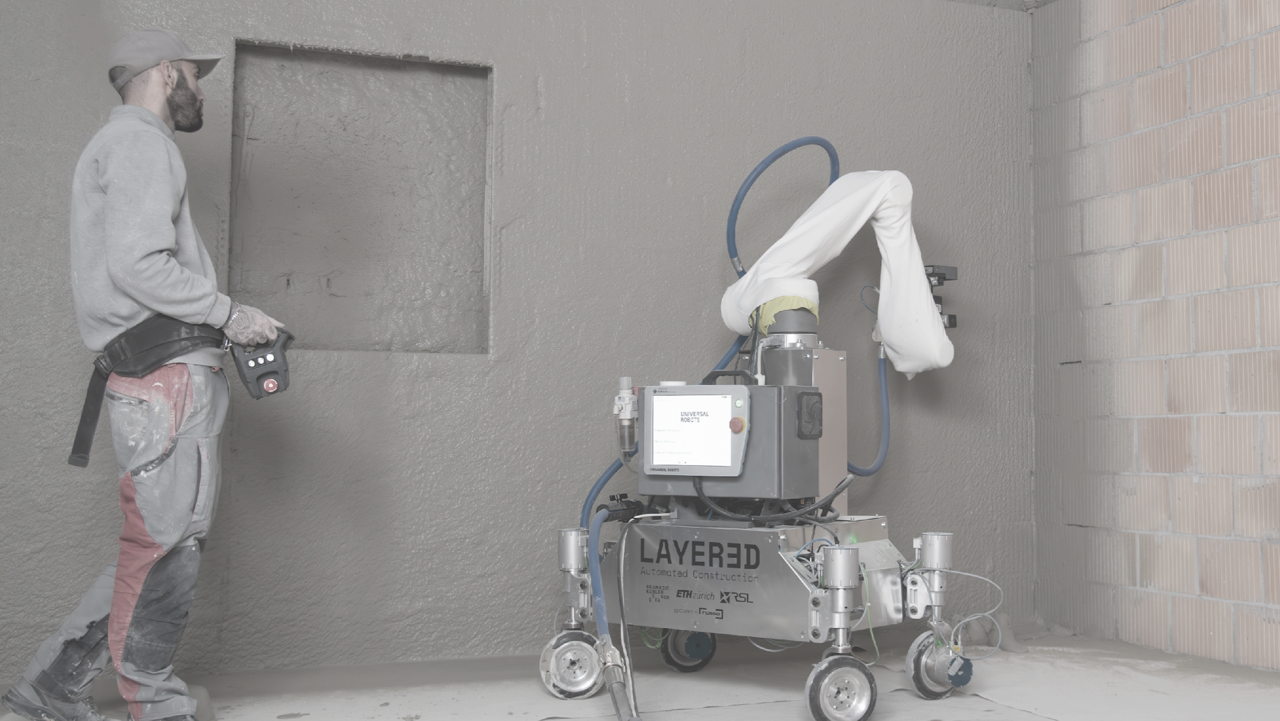This project is a collaboration between LAYERED, a young start-up company from Gramazio Kohler Research and NCCR Digital Fabrication and the Swiss Data Science Center (SDSC). It aims to establish a minimum viable solution towards autonomous digital fabrication for optimal robotic plaster printing, with the use of state-of-the-art deep learning modeling techniques.
The fabrication system introduces a unique printing-in-motion technology that is enabled by the synchronized motion of the robotic arm and the mobile base. To optimize printing trajectories, a predictive model based on Graph Neural Networks (GNNs) will be developed and serve as a computationally efficient surrogate of the robotic on-site spray-based plaster printing process. The scope of this approach is to deliver a model that is able to generate accurate real-time predictions of the fabrication process outcome across the entire operational spectrum. Under this perspective, the developed modelling technique will be integrated into the fabrication pipeline in order to optimize the robotic arm and spraying gun parameters and ultimately guide the generation of efficient and accurate printing trajectories with the use of a model predictive control approach. The final phase includes the validation and performance assessment of the developed workflow. This innovation addresses the variability and unpredictability of real-world construction environments, where achieving a consistent plaster thickness and quality is challenging. The integration of this advanced intelligence into mobile robotic systems will enhance the precision and adaptability of on-site plastering, reducing material waste and labor costs while improving construction speed and quality.
This project is a collaboration between LAYERED (Gramazio Kohler Research) and the Swiss Data Science Center (SDSC) and it is supported by the Feasibility Study grant from Hightech Zentrum Aargau.

